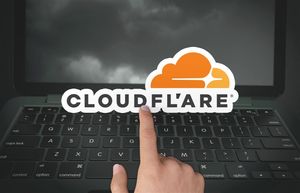This Fall, Older Adults Should Protect Their Health

SPONSORED CONTENT -- (StatePoint) With cold and flu season upon us, it’s time to protect yourself, not only from those seasonal threats, but also from other health risks.
“During the holidays, our lives get very busy with family and friends,” said Dr. J.B. Sobel, chief medical officer for Cigna Healthcare’s Medicare business. “Before then, please take time to ensure you get the preventive care you need to stay healthy.”
Preventive care is critical for everybody, but particularly for older adults, and especially in fall when risks can increase, Sobel said. Recommendations vary based on age, gender and health status, but the following are some of the most common for seniors, according to Sobel.
Vaccinations
There are a number of vaccines older adults need to consider to protect themselves. Flu and pneumonia, for example, are among some of the most common causes of senior deaths. There is no “one-size-fits-all” approach to vaccination. Timing and frequency vary, depending on your health history. Ask your health care provider which vaccines are appropriate for you.
• Flu. This vaccine is administered annually, generally before the end of October, and is designed to match the latest circulating flu strains.
• Pneumonia. Administration varies based on health history. If you’re 65 or older and you’ve never had the vaccine before, then you’ll likely need two shots, which are administered a year apart.
• Shingles. The Centers for Disease Control and Prevention (CDC) recommends two doses of the shingles vaccine for healthy adults aged 50 and older, spaced two to six months apart, to prevent shingles and related complications.
• COVID-19. Ask your doctors about current recommendations for prevention of COVID-19 infections.
• RSV. Earlier this year, the Federal Drug Administration approved two separate vaccines to address respiratory syncytial virus (RSV) in older adults. RSV, a common respiratory infection, usually causes mild, cold-like symptoms, but can be more severe in older adults and children. Talk to your doctor about whether you should get an RSV vaccine.
Health Screenings
The following health screenings are commonly recommended for older adults.
• Mammogram. Breast cancer is the second leading cause of cancer death in women in the United States, according to the CDC. Every woman is at risk, and risk increases with age. Fortunately, breast cancer can often be treated successfully when found early. The U.S. Preventive Services Task Force (USPSTF) recommends women 50 to 74-years-old at average risk get a mammogram every two years.
• Colorectal screening. Colorectal cancer risk increases with age. Screenings can find precancerous polyps early, so they can be removed before they turn into cancer. The USPSTF recommends colorectal cancer screening for adults age 45 to 75. Though colonoscopy is the most comprehensive test, there are other options you may consider with the help of your provider.
• Bone density scan. USPSTF recommends women aged 65 and older, and women 60 and older at increased risk, be routinely screened for osteoporosis, a disease in which bones become weak and brittle. Screening may facilitate treatment that helps prevent fractures.
• Eye exam. Routine eye exams can identify early signs of eye disease that are more likely as people age. People with diabetes in particular are prone to retinopathy, which leads to vision loss. It’s recommended that people with diabetes have annual retinal screenings.
• Mental health checkup. Many people experience seasonal depression during fall. Mental health is strongly linked to physical health. Talk to your health care provider about both, including your personal and family history. They can connect you with additional mental health resources.
To prevent unpleasant surprises, Sobel suggests talking with your health care provider, pharmacist or insurer about preventive care costs. Fortunately, costs are often covered fully by Medicare or Medicare Advantage, he said.
The information contained in this article is not intended to be a substitute for professional medical advice, diagnosis, or treatment. Always seek the advice of your physician or other qualified health care provider with any questions you may have regarding a medical condition or treatment and before undertaking a new health care regimen.
*****
Photo Credit: (c) Jelena Stanojkovic / iStock via Getty Images Plus
More News
View More




Recent Quotes
View More
Quotes delayed at least 20 minutes.
By accessing this page, you agree to the Privacy Policy and Terms Of Service.